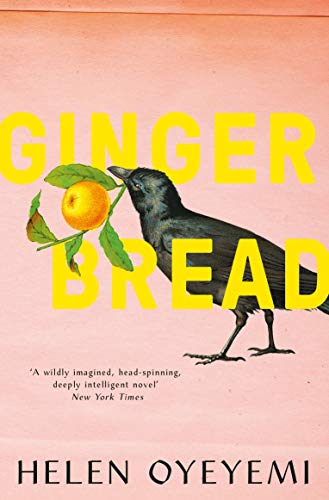‘It’s like noshing on the actual and anatomical heart of somebody who scarred your beloved and thought they’d got away with it,’ the gingerbread addict said. ‘That heart, ground to ash and shot through with darts of heat, salt, spice and sulphurous syrup, as if honey was measured out, set ablaze and trickled through the dough along with the liquefied spoon. You are phenomenal. You’ve ruined my life for ever. Thank you.’
‘Thank you,’ said Harriet. [loc. 23]
Harriet Lee makes gingerbread. Some like it, others reject it. The recipe's an old Druhástranian one, handed down from mother to daughter: the original was a way of using blighted rye. ('gingerbread made the difference between choking risk down and swallowing it gladly'.)
But wait: Druhástrania? 'an alleged nation state of indeterminable geographic location', says this universe's Wikipedia. An island nation somewhere in Eastern Europe, blighted by bureaucracy and marooned by a referendum. Harriet and her mother Margot come from Druhástrania: Harriet's daughter Perdita tries to visit Druhástrania via an uncommon and dangerous route. Recovering but mute, she demands -- with the help of her four talking dolls -- the story of how Harriet came to England. This story will range from the surreal (landmarks such as a giant clog and a wandering jack-in-the-box) to the sordid (the Gingerbread Girls with their wholesome smiles and the soirees at which they play musical chairs with elderly patrons), and introducing a cast of strong-willed characters, including the Kercheval family -- to whom the Lees owe a great deal, and possibly vice versa -- and Harriet's childhood friend Gretel, the girl in the well.
The prose is exuberant, the invention wild, the women -- nearly all the characters are women -- fascinatingly flawed and prone to thinking of their lives in terms of story. Gingerbread doesn't adhere too closely to the story of Hansel and Gretel: it uses that fairytale as a springboard for a story about repression, identity, trying to fit in and trying to find home.
I didn't find it a wholly satisfactory read. The story itself seemed to fizzle out near the end: perhaps I was not reading closely enough, or perhaps my expectations were in a different key. I loved the luscious and sensual prose, I appreciated the (sometimes dark) humour, but I had no real sense of an ending.
Thanks to NetGalley for the free review copy, in exchange for this honest review.

No comments:
Post a Comment